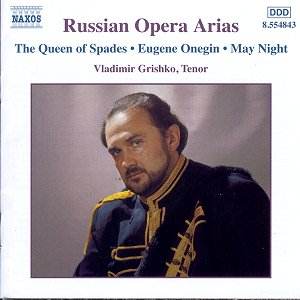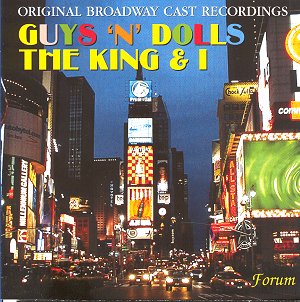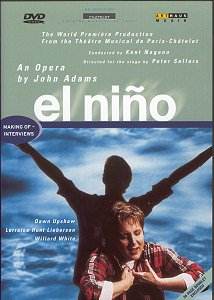 Composer: Tchaikovsky, Rimsky-Korsakov, Mussorgsky, Arensky
Composer: Tchaikovsky, Rimsky-Korsakov, Mussorgsky, Arensky
Works: Overtures, dances, and arias from Queen of Spades, May Night, Eugene Onegin, Sorochintsy Fair, Dream on the Volga
Performers: Vladimir Grishko (tenor), National Symphony Orchestra of Ukraine, Theodore Kuchar (conductor), Ukraine State Radio Symphony Orchestra, Vladimir Sirenko (conductor)
Recording: NAXOS 8.554843 [66’48”]
Label: NAXOS
The allure of Russian opera, with its rich tapestry of melodies and deep emotional currents, finds a compelling voice in this collection of arias and orchestral excerpts featuring tenor Vladimir Grishko. The works presented span a significant historical context, encapsulating the unique characteristics of Russian opera from Tchaikovsky’s brooding characters to Rimsky-Korsakov’s lush orchestral textures. This volume offers not only a showcase of Grishko’s vocal capabilities but also an invitation to explore the lesser-known corners of the Russian operatic repertoire, interspersed with familiar orchestral fare that is both engaging and evocative.
Grishko’s voice, described as baritonal and wide of vibrato, presents a duality that is both fascinating and challenging. His interpretation of Hermann in Tchaikovsky’s Queen of Spades reveals a tenor grappling with the weight of the role, where the demands of the high tessitura occasionally stretch his voice precariously. While he embodies the character’s despair, the lack of steel in his upper register can lead to moments of tension rather than liberation. In contrast, his portrayal of Levko from Rimsky-Korsakov’s May Night is imbued with a buoyancy that highlights the work’s rich, lyrical lines. This aria, filled with tuneful exuberance, showcases Grishko’s ability to navigate the lighter, more lyrical demands of the role, where his voice feels more at home.
The orchestral accompaniments, expertly conducted by Theodore Kuchar and Vladimir Sirenko, are noteworthy for their clarity and balance, allowing the textures of the National Symphony Orchestra of Ukraine to shine. The instrumental interludes, particularly the overture to Arensky’s Dream on the Volga, are performed with a vibrancy that underscores the thematic material that recurs throughout the disc. The French horn sections deserve particular mention for their eloquent phrasing, which enhances the overall orchestral color. The sound engineering is commendable, providing a spacious and resonant backdrop that supports both the vocal and instrumental elements effectively.
Grishko’s interpretation of Lensky’s arias from Eugene Onegin is a highlight, as it embodies the poignant yearning central to the character’s narrative. His ability to blend lyrical ardor with a delicate recitativo style is particularly striking, especially in the duet with bassoon, which evokes an early glimpse of Stravinsky’s Rite of Spring. However, the recurring theme of gloom, prevalent in many selections, might limit the emotional palette, revealing a lack of contrasting brightness that could further enliven the performance.
Russian Opera Arias Vol. 1 offers an insightful entry into the operatic traditions that have shaped Russian music. While Grishko’s tenor may not possess the typical brilliance associated with Italian counterparts, his unique timbre and interpretative choices provide a refreshing perspective on these well-trodden works. The combination of familiar orchestral highlights with lesser-known arias creates an engaging listening experience that showcases the depth and variety within the Russian operatic canon. This disc is an essential acquisition for those seeking to deepen their understanding of Russian opera and the nuances of its tenor roles, solidifying Grishko’s position as a noteworthy interpreter within this repertoire.



